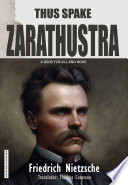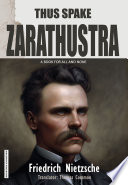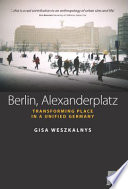Check out the best German authors and expand your knowledge of German literature by adding the most respected German novelists to your reading list.
The contribution of the best German authors to the field of literature is immeasurable. German writers since the Enlightenment have been producing bestsellers and some of the world’s most revered academic work. In the 19th century, the country became a powerhouse of philosophy and early modern writing.
For more recommendations, you might also enjoy exploring best poetry books, best American authors, or best classic literature books.
Table of Contents
Open Table of Contents
- Classic vs Contemporary
- Subgenre Guide (quick picks)
- Must-Read German Authors
- 1. Friedrich Nietzsche, 1844 – 1900
- 2. Heinrich Heine, 1797 – 1856
- 3. Alfred Doblin, 1878 – 1957
- 4. Heinrich von Kleist, 1777 – 1811
- 5. Herman Hesse, 1877 – 1962
- 6. Bertolt Brecht, 1898 – 1956
- 7. Günter Kunert 1929 – 2019
- 8. Franz Kafka, 1883 – 1924
- 9. Heinrich Boll, 1917 – 1985
- 10. Michael Ende, 1929 – 1995
- 11. Bernhard Schlink, 1944
- 12. Friedrich Schiller, 1759 – 1805
- 13. Patrick Suskind, 1949
- 14. Thomas Mann, 1875 – 1955
- 15. Erich Maria Remarque, 1898 – 1970
- 16. Johann Wolfgang von Goethe, 1749 – 1832
- 17. Rainer Maria Rilke, 1875 – 1926
- 18. Günter Grass, 1927 – 2015
Classic vs Contemporary
- Classics: Goethe (Faust I), Schiller (Don Carlos), Mann (Buddenbrooks), Kafka (The Metamorphosis)
- Contemporary/post‑war: Böll (The Lost Honor of Katharina Blum), Grass (The Tin Drum), Schlink (The Reader), Kunert (poetry and post‑war themes)
Dip into a classic for foundations, then sample a post‑war voice for modern sensibility.
Subgenre Guide (quick picks)
- War & Memory: Erich Maria Remarque, Heinrich Böll, Günter Grass
- Philosophy & Ideas: Friedrich Nietzsche, Hermann Hesse, Thomas Mann
- Modernism & Experimental: Alfred Döblin, Franz Kafka, Bertolt Brecht
- Fantasy & Children’s: Michael Ende
- Crime & Psychological Suspense: Patrick Süskind
Enjoy crime and mystery? Explore the broader hub: Mystery & Crime.
Must-Read German Authors
1. Friedrich Nietzsche, 1844 – 1900
Friedrich Nietzsche is a German philosopher and poet
Friedrich Nietzsche is a German philosopher primarily known for his work regarding nihilism and the impact of ‘the death of god” on Western society. Nietzsche is a true heavyweight in philosophy circles, and no university course would be complete without at least a handful of his books.
He was born in Saxony, then Prussia, and studied at the University of Basel, where he became the youngest to hold the Chair of Classical Philology position. During his time, Nietzsche developed several tracts of philosophical beliefs that are still widely debated and studied today. Arguably, one of his most notable concepts was the “Übermensch,” which he developed in his book Thus Spoke Zarathustra.
The Übermensch sets out a new goal for humanity beyond the promises made by Christianity that focus our attention on the afterlife instead of the present. The ideas presented by the book were highly controversial at a time when atheism was still taboo in many circles. For more recommendations like this,
“I am a forest, and a night of dark trees: but he who is not afraid of my darkness, will find banks full of roses under my cypresses.”
Friedrich Nietzsche, Thus Spoke Zarathustra
2. Heinrich Heine, 1797 – 1856
Heinrich Heine was a German writer and poet known for his lyric poetry
Born to Jewish parents in Dusseldorf, Heinrich Heine was a poet and author well ahead of his time. His lyric poetry was often filled with satire, and he rarely shied away from political critique. In his earlier days, Heine was a law student in Berlin, and later, he studied banking in Frankfurt and Hamburg at the behest of his family. However, Heine was never cut out for the business world and chose to focus on his writing.
Heine’s work in lyric poetry put him in the spotlight in Germany and other countries across Europe. However, the political class in Germany at the time was not fond of his harsh words, so he had to flee.
_“Where they have burned books, they will end in burning human beings.” _
Heinrich Heine
3. Alfred Doblin, 1878 – 1957
Alfred Doblin was a German essayist, novelist and doctor
Alfred Doblin is often called the father of German literary modernism, even though he was born in Stettin, in modern-day Poland. Like many other authors, Doblin was born to assimilated Jewish parents. His childhood was one of turbulence and uncertainty. At a young age, he witnessed his father leave his mother for a younger woman and disappear to the US.
With his father gone, Doblin moved to Berlin with his mother and siblings, where he studied medicine as a young man. In between exams and practicals, Doblin started writing and authored several novels.
Out of all of his work, Berlin Alexanderplatz cemented his place in German literary history. Published in 1929, the story follows a recently released prisoner and his attempt to navigate the streets of Berlin, where crime and fascism were rising.
“He swore to all the world and to himself that he would remain decent. And as long as he had money, he remained decent. But then he ran out of money, which was a moment he had been waiting for, to show them all what he was made of.”
Alfred Döblin*, Berlin Alexanderplatz*
4. Heinrich von Kleist, 1777 – 1811
Heinrich von Kleist was a provocative figure in German literature
Renowned for his exploration of moral ambiguity and the depths of the human psyche. Hailing from Frankfurt an der Oder, Kleist’s tumultuous life was marked by personal struggles and an unwavering quest for meaning. Among his notable achievements,The Marquise of O(1808) remains a standout work, unraveling the enigmatic tale of a young widow’s mysterious pregnancy and the ensuing societal judgment.
However, it is Michael Kohlhaas(1810) that crowns Kleist’s legacy as a master of narrative complexity and psychological depth. This novella delves into the relentless pursuit of justice by Michael Kohlhaas, a horse dealer wronged by a nobleman, painting a powerful canvas of justice, revenge, and the individual’s unwavering battle against injustice. Kleist’s remarkable ability to dissect moral dilemmas and plumb the intricacies of human nature ensures his enduring influence on German literature and secures his place as a pivotal figure in early German Romanticism.
“Misconceptions are unavoidable now that we’ve eaten of the Tree of Knowledge. But Paradise is locked and bolted, and the cherubim stands behind us. We have to go on and make the journey round the world to see if it is perhaps open somewhere at the back.”
Heinrich von Kleist
5. Herman Hesse, 1877 – 1962
Herman Hesse was a German-Swiss poet and novelist known for his spiritual writing
Herman Hesse is regarded as one of the most influential 20th-century German authors. He was born into a highly religious family that often went on ‘missions’ to India, where they attempted to sow the seeds of Christianity. Despite his rigid upbringing, Hesse was a rebel in many ways, as his work often criticized societal norms and, later, the Nazi regime.
His experiences in Asia and his traditional Western upbringing gave Hesse a unique outlook on the world. In his book ‘Siddhartha’ he cleverly weaves Western and Eastern philosophy together in a journey of self-discovery. If Siddhartha sounds like a book that would interest you, also read*Steppenwolf**, which many people consider Hesse’s finest work.
“Solitude is independence. It had been my wish and with the years I had attained it. It was cold. Oh, cold enough! But it was also still, wonderfully still and vast like the cold stillness of space in which the stars revolve.”
Hermann Hesse, Steppenwolf
6. Bertolt Brecht, 1898 – 1956
Bertolt Brecht was a writer and poet known for creating epic theater
Bertolt Brecht is a 20th-century German poet and playwright who served in the medical corps of the German army during World War I. His experiences during World War I deeply impacted the young German writer, and he struggled to adapt to normality once the peace accords were signed. He eventually moved to Berlin, where he studied theater.
Brecht’s career in Berlin was cut short when he was exiled to Scandinavia in the face of the Nazi movement’s political power grab in Germany. The Nazis eventually followed Brecht to Scandinavian, and as a result, he again went into exile, this time in the US.
Following World War II, Brecht was back in Germany, this time in East Berlin, where he built a strong reputation as a writer and founded his own theater company. The Good Person Szechwanis a play by Brecht set in the Chinese city of Sichuan and explores the core principles of morality by telling the life story of a Chinese prostitute.
“How can one remain free of every weakness, above all of the most deadly, of love?”
Bertolt Brecht*, The Good Person of Szechwan*
7. Günter Kunert 1929 – 2019
Günter Kunert (1929-2019) was a distinguished German author
Günter Kunert was renowned for his thought-provoking literary works that navigated the complexities of morality, justice, and the human experience in the aftermath of World War II. Among his best-known books, “The Execution of Justice” (1960) stands out as a profound exploration of the moral dilemmas faced by resistance fighters during the war, delving into questions of betrayal, justice, and wartime decisions.
In the realm of poetry, Kunert’s collections, such as “Out of the Smoke” and “Poems and Lies” showcase his ability to craft introspective verses that reflect on the passage of time, the intricacies of human nature, and the power of language. Günter Kunert’s notable achievements in literature earned him recognition as a significant figure in post-war German literature, and his works continue to be celebrated for their deep philosophical insights and poignant examination of the human condition.
8. Franz Kafka, 1883 – 1924
Franz Kafka was a German-speaking writer from Czechia
Despite dying young, Franz Kafka contributed more than most to 20th-century German-language literature. Kafka was born in Prague, which at the time was under Austro-Hungarian rule, to a wealthy Jewish family. He studied law as a young man but eventually gave up on the legal world and moved to Berlin to pursue his passion for the written word.
Kafka’s work is notoriously grotesque and often verges on the absurd, which wasn’t common in German literature in the early 20th century.
He is primarily known for short story writing. Consider reading Metamorphosisand*The Trail *to experience Kafka’s unique storytelling and dark edge. It’s almost certain that Kafka would have produced countless more classics if he hadn’t passed away at such a young age. If you want to explore more authors from neighboring countries, you might enjoy our list of the best Polish authors.
“It’s only because of their stupidity that they’re able to be so sure of themselves.”
Franz Kafka, The Trial
9. Heinrich Boll, 1917 – 1985
Heinrich Boll is considered one of Germany’s most prominent post-World War II authors
Boll was a 1972 Nobel Prize for Literature winner and was heavily involved in political discourse following the war and criticized the German government’s human rights record. His impact on German political thought has been immortalized in the Heinrich Boll Foundation.
The Lost Honor of Katharina Blumexplores propaganda and how tabloid sensationalism can often lead to panic and violence. The book was a huge hit when it was published in 1974 and has since been turned into a film.
“One would like to know, for most people, being denied reliable telepathic communication, reach for the phone, which they feel is more reliable.”
Heinrich Böll, The Lost Honor of Katharina Blum
10. Michael Ende, 1929 – 1995
Michael Ende was a German fantasy and children’s book author
Michael Ende is a 20th-century German author who pushed fantasy and children’s fiction in German to new heights. Even though he focused primarily on children’s books, he also penned several successful adult novels. Ende’s children’s books) have sold millions of copies, have been translated into around 40 languages, and some have even been recreated as movies. He was born and raised in Bavaria, Germany, and was drafted into the army at a young age.
His most notable book is The Never Ending Story, which was translated into over 30 languages and turned into several successful films. The*Never Ending Story *is an excellent read for adults and children. Ende’s fantasy world in the book is brilliantly original and explores themes of innocence, childhood, and hardship.
“You must let what happens happen. Everything must be equal in your eyes, good and evil, beautiful and ugly, foolish and wise.”
Michael Ende, The Neverending Story
11. Bernhard Schlink, 1944
Bernhard Schlink is a German writer, lawyer and academic
Bernhard Schlink was born just months before the end of World War II in Bielefeld, Germany, to Swiss-German parents. His early professional life saw him embark on a successful legal career in post-war Germany. While forging a career in law, he managed to make time for writing novels, and in 1987, he published his first novel, Selbs Justiz.
He wrote The Readera few years after Selbs Justiz, and it quickly became a bestseller. Published in 1995, The Reader looks at post-World War II Germany and the nation’s struggles with understanding the Holocaust. The Reader has sold millions of copies, been translated into over 40 languages, and often features on university reading lists.
“The tectonic layers of our lives rest so tightly one on top of the other that we always come up against earlier events in later ones, not as matter that has been fully formed and pushed aside, but absolutely present and alive. I understand this. Nonetheless, I sometimes find it hard to bear.”
Bernhard Schlink, The Reader
12. Friedrich Schiller, 1759 – 1805
Friedrich Schiller was a German writer, poet, playwright, and philosopher
Friedrich Schiller was born in Württemberg and, despite his short life, contributed a great deal to late 18th-century German literature. His father was a military doctor and expected his son to join him in medicine. Schiller became a doctor and, in 1780, joined an army regiment.
However, the military was not Schiller’s calling, and he went AWOL to see a play in Mannheim. He was imprisoned for two weeks for abandoning his post, but that didn’t discourage him from pursuing a career in literature.
He wrote several notable plays and poems in his short career. Arguably, his five-act tragedy play Don Carlos earned him a place among the German greats. Don Carlosis set in Northern Spain and follows the semi-factual story of Carlos, the Prince of Asturias, in the 16th Century.
“To save all we must risk all.”
Friedrich von Schiller, Fiesco; or, the Genoese Conspiracy
13. Patrick Suskind, 1949
Patrick Suskind is a German screenwriter and writer known for his novel Perfume
Patrick Suskind is a 20th-century German author and screenwriter born in Bavaria just as West and East Germany started recovering from the war. After finishing his studies in Munich, he moved to Paris, where he mastered the art of writing.
France has played a central role in his writing development, and French cities often inspire his novels. Suskind’s work offers a lot if you’re interested in 18th and 19th-century France or crime thrillers. The first Suskin book to consider reading is Parfume, The Story of a Murderer, a psychological thriller set in 18th century France that was so successful that it has since been turned into a film.
“Odors have a power of persuasion stronger than that of words, appearances, emotions, or will. The persuasive power of an odor cannot be fended off, it enters into us like breath into our lungs, it fills us up, and imbues us totally. There is no remedy for it.”
Patrick Süskind, Perfume: The Story of a Murderer
14. Thomas Mann, 1875 – 1955
Thomas Mann was a German novelist and social critic
The 1929 Nobel Prize winner Thomas Mann is undoubtedly one of the best-known authors globally, not just in the German literary world. Born in Germany towards the end of the 19th century Thomas Mann survived both World Wars and experienced the first decade of peace that followed the collapse of the Nazi regime.
Mann spent most of his early adulthood in Munich, where he witnessed the rise of Hitler in the 1930s. Despite the dangers, he was one of the loudest voices against fascism and regularly lectured the public on the threat of ruthless ideology.
In 1930, he held a lecture titled An Appeal to Reasonin Berlin, calling for the workers and the bourgeoisie to unite against fascism. Unfortunately, Mann couldn’t shift public discourse, and in the mid-1930s, he moved to neutral Switzerland, where he was advised to remain as Hitler rose to power in his native country. Later in his life, Mann moved to the US and back to Switzerland but never returned to Germany.
Out of all his essays, novels, and books, Buddenbrooksis arguably his most important piece. The story follows a wealthy German family attempting to adapt to modernity across several generations.* Buddenbrooks *earned Mann the Nobel Prize for Literature in 1929.
“Death was a blessing, so great, so deep that we can fathom it only at those moments, like this one now, when we are reprieved from it. It was the return home from long, unspeakably painful wanderings, the correction of a great error, the loosening of tormenting chains, the removal of barriers---it set a horrible accident to rights again.”
Thomas Mann, Buddenbrooks: The Decline of a Family
15. Erich Maria Remarque, 1898 – 1970
Erich Maria Remarque was a German-born novelist and anti-war writer
Erich Maria Remarque is best known for his novel All Quiet on the Western Front, which has been turned into several films, including a highly successful adaptation by Netflix in 2023. He was born in Osnabruck, Germany, and was drafted into the German army as a young man following the outbreak of World War I.
He experienced the horrors of trench warfare in World War I, and this is often reflected in his work. After surviving the war, he began writing, and in 1929, he published All Quiet on the Western Front.
The story is a profoundly moving insight into German soldiers’ terror during the First World War. It gives the reader an insight into the young men who joined the war effort on patriotic grounds only to be thrown into one of the most deadly conflicts ever unleashed on the European continent.
An additional aspect of All Quiet on the Western Front that makes it a must-read is how it examines the long-term trauma that the German soldiers took home after the war.
Remarque’s criticism of the German war effort was labeled unpatriotic by the Nazi regime, and he lived out his life in exile. If you enjoyed learning about the best German authors and want to explore other authors from around the globe, you might be interested in reading our guide on the best French authors).
“I am young, I am twenty years old; yet I know nothing of life but despair, death, fear, and fatuous superficiality cast over an abyss of sorrow. I see how peoples are set against one another, and in silence, unknowingly, foolishly, obediently, innocently slay one another.”
Erich Maria Remarque, All Quiet on the Western Front
16. Johann Wolfgang von Goethe, 1749 – 1832
Johann Wolfgang von Goethe was a German writer, poet, and scientist
Johann Wolfgang von Goethe contributed significantly to German language literature. He’s regarded as one of the best 19th-century authors. Goethe was born in Frankfurt and made a name for himself as an early Sturm und Drang literary movement member. Beyond writing, he also forged a successful political career, securing several high-ranking government roles.
Learn more about Goethe and other influential German writers in our guide to the best German authors.
The Sorrows of Young Werther was Goethe’s first highly successful publication. The story is a collection of letters that focus on a young man’s first experience of love. The story was hugely popular in late 18th-century Europe and became one of Napoleon’s favorites.
Consider Faust if you want to read just one of Johann Wolfgang von Goethe’s books**.*It took Goethe the best part of half a century to write Faust, the two-part tragedy that tells the story of a man who makes a deal with the devil and inspires several future German writers, including Nietzsche and Beckett.
“The human race is a monotonous affair. Most people spend the greatest part of their time working in order to live, and what little freedom remains so fills them with fear that they seek out any and every means to be rid of it.”
Johann Wolfgang von Goethe, The Sorrows of Young Werther
17. Rainer Maria Rilke, 1875 – 1926
Rainer Maria Rilke was an Austrian novelist and expressive poet
Rainer Maria Rilke was an Austrian poet and writer regarded as one of the most significant German writers. His work is viewed as possessing mysticism, exploring subjective experience and disbelief.
Rike traveled throughout Europe and eventually settled in Switzerland, which inspired many of his passionate poems. Rike’s poems “Duino Elegies” and “Sonnets to Orpheus” delve into themes of existential longing, solitude, and the human condition with a lyrical and reflective elegance.
His “Letters to a Young Poet” collection is addressed to a 19-year-old cadet at the Theresian Military Academy in Wiener Neustadt. Give readers guidance on the creative process and insight into what makes a great poet.
“Perhaps all the dragons in our lives are princesses who are only waiting to see us act, just once, with beauty and courage. Perhaps everything that frightens us is, in its deepest essence, something helpless that wants our love.”
Rainer Maria Rilke, Letters to a Young Poet
18. Günter Grass, 1927 – 2015
Günter Grass was a German poet, novelist and graphic artist
Günter Grass was a German writer but also an artist and a sculptor. He was born in Poland and was drafted into the military as a teenager in 1944. He was taken as a prisoner of war by the US forces but was released in April 1946. Grass began writing in the 1950s and published his first novel, The Tin Drum, in 1959, the first book of his Danzig trilogy. His works are considered left-wing in tone, with Grass actively supporting the Social Democratic Party of Germany.
The Tin Drum captures the complex history of 20th-century Germany through the eyes of protagonist Oskar. Grass’s signature narrative style uses magical realism to provide insight into the many emotions Oskar experiences. With themes of guild, identity, societal change and fascism, this novel is complex and intriguing.
“Today I know that all things are watching, that nothing goes unseen, that even wallpaper has a better memory than human beings.”
Günter Grass, The Tin Drum





